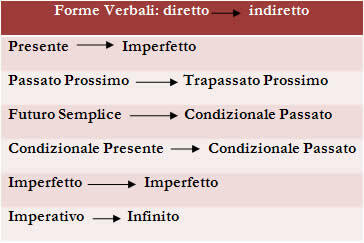*Significati: / Meanings:
Venire:
- “Avere origine da un luogo o de qualcosa: 'Venire da una familia nobile, da un paese povero.'; "Da dove viene la tua fiducia?". / Originating from a place or something: ‘Coming from a noble family, from a poor country.’; ‘Where does your confidence come from?.
- Muoversi per raggugere a scope: ‘I will come to passeggio with me?’. Introduction to a o per: ‘Vengo The trovarti.’; Verro per chiarire le sew.’. / Move to reach a purpose: ‘I come to find you.’; ‘ I turned to clear things up. ’.
- In funzione di sostantivo maschile, movement, use especially in contraposition esplicita con walk: "C’è un continuo walke e venire di persone." / In function of the masculine noun, movement, used especially in explicit contraposition with ir: 'There is a continuous coming and going of people.'.
Floor:
- “Muoversi, camminando, o in mezzo di locomozione, and direcrsi verso un luogo o persona: ‘Andare a scuola.’; ‘Andare da un amico.’. Spesso use with specificazione of the mezzo or the way: ‘Walk the house in treno.’; ‘Walk a scuola in biciceltta.’. / Moving, walking, or in the middle of locomotion, and going to a place or person: ‘Go to school.’; ‘Go to a friend's house.’. Widely used with specification of medium or mode: ‘Go home by train.’; ‘Bicycling to school.’.
- Change and cover a tragitto from a certain time to an altitude: ‘Questo train from Milano to Roma. ’.” / Moving and covering a route from one place to another: ‘This train goes from Milan to Rome.’.
*Definition withdrawn: SABATINI – COLETTI, Dizionario Italiano edits dalla Casa Editrice Giunti.
Its meaning is used when the movement is involuntary oppure autonomous, in direzione ad a persona or ad a play. / From the meaning, it is observed that the verb 'andare' (to go) is used when the movement is involuntary or autonomous, towards a person or a place.
Vedi degli esempi: / See some examples:
1) Vado al bar bere qualcosa. / I'm going to the bar for a drink. (I go spontaneously to the bar).
2) Andiamo al cinema insieme. / Let's go to the movies together. (I get excited about going to the movies with other people).
Do not stop now... There's more after the advertising ;)
Its meaning is used when the verb comes from when the movement originates from a cheesto or dalla need to arrivare in a position or a persona. È use anche to indicate a point of partance or origin. / From the meaning it is observed that the verb ‘vinire’ (to come) is used when the movement originates from a request or the need to reach a place or a person. It is also used to indicate starting point or origin.
Vedi degli esempi: / See some examples:
1) Stasera venite tutte a mangiare da mum. / Tonight, all of you come and eat at my house. (I make an invitation for everyone to come).
2) Giulia Viene from Milano. / Giulia comes from Milan. (Giulia's place of origin).
Note bene! / Watch!
- In the Italian language it uses only the verb venire col the meaning of arrivare. Vedi alcuni esempi: / In the Italian language the verb come is often used with the meaning of arriving. See some examples:
1) I come the house always presto dal lavoro. / I always get home early from work.
2) Non capisco una cosa, if siamo già al tavolo, perchè il cameriere non vienna Thu? / I don't understand one thing, if we're already at the table, why doesn't the waiter come here?
- It is important to direct it in the Italian language without being able to confdere the present tense with the future tense. If you see the situation, when the verb walk is used. È possibile osservare ciò alla lingua portoghese (Brasile). Vedi com’è all’italiano. / It is important to say that in the Italian language the present tense cannot be confused with the future. You see this situation a lot when the verb ‘andare’ (to come) is used. It is possible to observe this in the Portuguese language (Brazil). See how it is in Italian.
1) Giulia goes to mangiare /Giulia goes to eat. (doesn't mean she will eat at that moment, but she moves to eat).
2) Andiamo buying le bevande. / Let's buy the drinks. (does not mean action in the future, but that we move to do it).
Isabela Reis de Paula
Brazil School Collaborator
Graduated in Languages with Qualification in Portuguese and Italian
By the Federal University of Rio de Janeiro - UFRJ
Italian - Brazil School
Would you like to reference this text in a school or academic work? Look:
PAULA, Isabela Reis de. "Le differenze tra i verbi VENIRE E ANDARE"; Brazil School. Available in: https://brasilescola.uol.com.br/italiano/le-differenze-tra-i-verbi-venire-andare.htm. Accessed on June 29, 2021.


